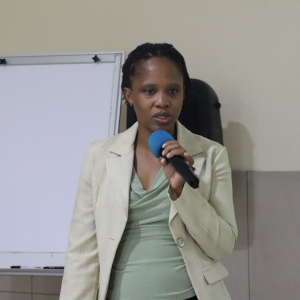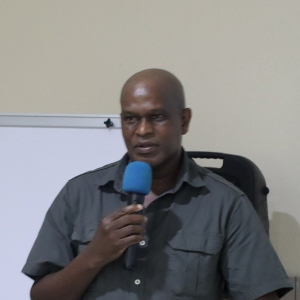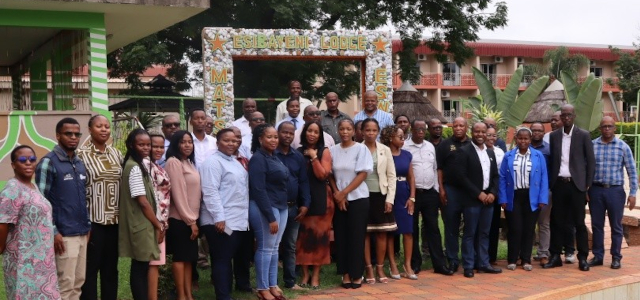One such initiative is the Training Workshop on the African Union Guidelines for the Development of Climate-Resilient Water Investment Programmes, held from 5–7 March 2025 under the AU-AIP Multi-Country Green Climate Fund (GCF) Readiness Project. The workshop, spearheaded by the Ministry of Tourism and Environmental Affairs (MTEA) in collaboration with the Ministry of Natural Resources and Energy, Department of Water Affairs, and with technical support from the Global Water Partnership Southern Africa (GWPSA), convened key national stakeholders to enhance Eswatini’s capacity in climate-resilient water investment planning and project development. This initiative aligns closely with the country’s Programme of Action (PoA) for 2024–2029, reinforcing national priorities on sustainable water management.
“The Guidelines for the Development of Climate-Resilient Water Investment Programme workshop, organised with technical support from African Union, GWPSA, and financial support from GCF, underscores their unwavering commitment to strengthening resilience in the water sector. This workshop equips us with the knowledge and tools necessary to develop comprehensive water investment programmes that integrate climate change considerations, ensuring long-term water security for our communities,” said Ms. Khangeziwe Mabuza, Principal Secretary and National Designated Authority (NDA) for the GCF in Eswatini’s Ministry of Tourism and Environmental Affairs.

Ms. Duduzile Nhlengethwa-Masina - Director of Meteorology
The workshop is part of broader efforts under the African Union (AU) Climate Change and Resilient Development Strategy (2022–2032), which provides a coordinated framework for climate action across Africa. Aligned with the 2015 UNFCCC Paris Agreement, this strategy recognises that Africa requires over USD 3 trillion by 2030 to implement effective climate adaptation and mitigation measures.
Eswatini’s PoA 2024–2029 prioritizes integrated water management systems, climate-smart agriculture, and improved sanitation as key pillars of climate resilience. Additionally, the government has committed substantial financial resources to the water sector, with an estimated budget of SZL 136 billion (USD 70 billion) dedicated to advancing sustainable water infrastructure and climate adaptation projects.
“The commitment to water security and climate resilience requires a holistic approach that integrates strategic investment, policy alignment, and inclusive stakeholder participation,” said Mr. Musawenkhosi Mwelase, representative of the Director of the Ministry of Natural Resources and Energy, Department of Water Affairs.

Musawenkhosi Mwelase, Representative of the Director Department of Water Affairs
A key focus of the workshop was enhancing Eswatini’s direct access to climate finance through the AU AIP Multi-Country GCF Readiness Project.
Speaking during the meeting, Mr. Bheki Ginindza, the National Technical Coordinator said, “Strengthened strategic planning and capacity development will enable the country to secure increased funding for critical water infrastructure and climate adaptation initiatives.”
Eswatini’s commitment to climate-resilient water investment marks a significant step toward sustainable development. By fostering partnerships, mobilising financial resources, and integrating inclusive decision-making, the country is laying the foundation for a future where water security is guaranteed for all. The success of this initiative demonstrates that strategic collaboration between governments, development partners, and local communities is essential to addressing the complex challenges posed by climate change.
